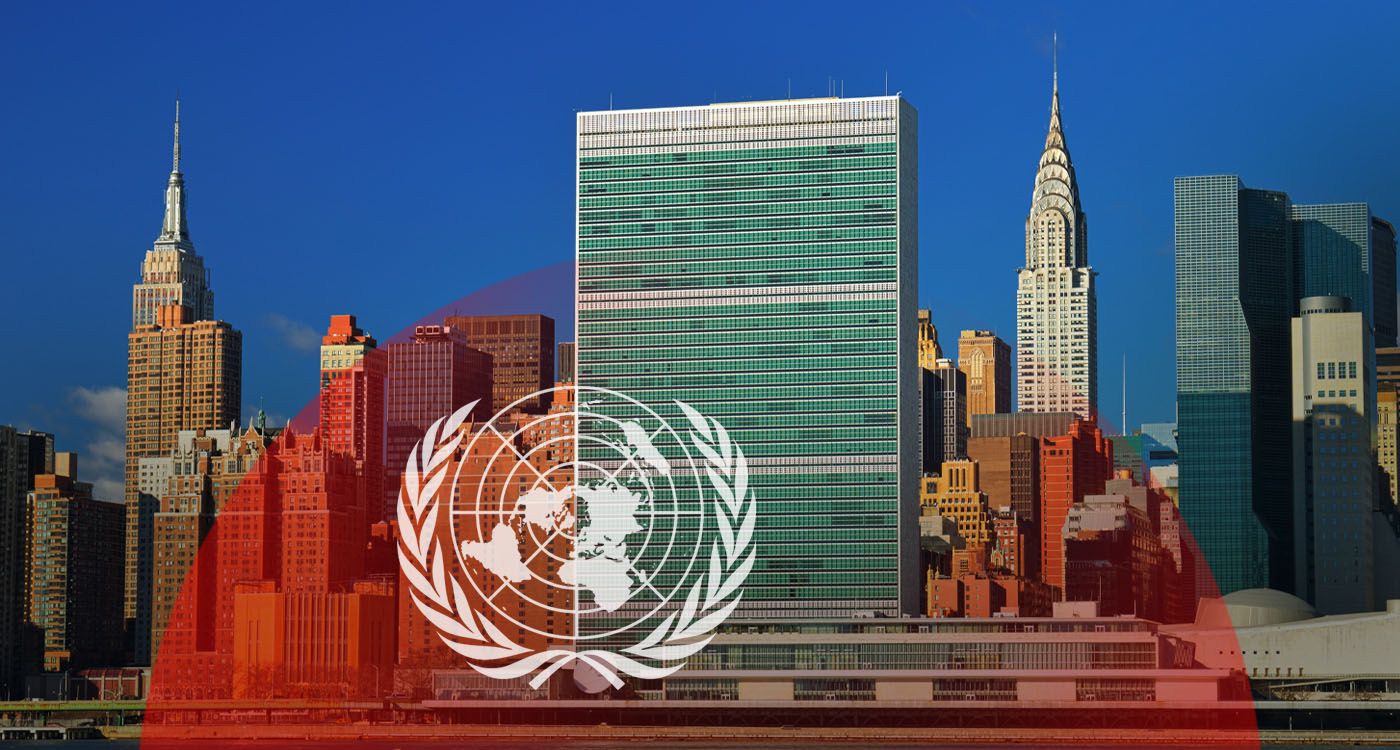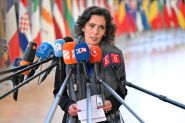- Home
- Middle East
- The UN at 80: Navigating Crisis and Hope in a Divided World

©This is Beirut
In June 2025, the United Nations celebrates its 80th anniversary. Founded in the aftermath of World War II with the mission to uphold peace, protect human rights and foster international cooperation, the UN now faces unprecedented challenges. As global divisions deepen and conflicts endure, its relevance and effectiveness are increasingly under scrutiny.
On June 26, 1945, just months after World War II ended, 51 nations gathered in San Francisco to sign the UN Charter. By October 24, the organization officially came into force, born from a simple but profound purpose: to prevent another global catastrophe.
Envisioned as the cornerstone of a new world order grounded in peace, justice and solidarity, the UN today appears weakened. Wars are multiplying, the Security Council is repeatedly deadlocked and the organization’s founding principles are regularly disregarded. Rather than a moment of triumph, this milestone exposes the deepening tensions and contradictions of a multilateral system in crisis.
High Ideals, Diminished Authority
From its inception, the UN embodied an ambitious global project. Article 1 of its Charter commits the organization “to maintain international peace and security,” promote human rights and “address economic, social, intellectual and humanitarian challenges.”
For much of the 20th century, these ideals inspired generations and shaped the architecture of international diplomacy. The UN has achieved real successes: peacekeepers have played critical—if sometimes limited—roles stabilizing volatile regions such as Lebanon. Humanitarian agencies like UNICEF and the United Nations High Commissioner for Refugees (UNHCR) have saved millions of lives in crisis-hit and impoverished regions.
The Universal Declaration of Human Rights, adopted in 1948, remains a foundational text in international law. Global initiatives such as the Millennium Development Goals and the 2030 Sustainable Development Goals (SDGs) have created unprecedented frameworks for global cooperation and collective action.
Yet, these accomplishments are increasingly overshadowed by structural shortcomings. The Security Council, dominated by five permanent members with veto power, reflects a postwar power balance that now hinders decisive action. Designed to preserve peace among great powers, it often obstructs any response, undermining UN effectiveness.
In recent years, vetoes have blocked meaningful resolutions on conflicts in Gaza, Ukraine, Sudan and Syria.
Frédéric Ramel, political scientist at Sciences Po Paris, explains, “The UN is significantly weakened. Its fragility stems from many states bypassing it in favor of minilateralism—a smaller, more flexible forms of multilateralism like the G7, a group of the world’s largest advanced economies, or the G20, which includes 19 countries plus the European Union. These formats impose fewer constraints.”
Beyond lofty rhetoric, the UN repeatedly confronts entrenched political, geopolitical and economic barriers that curtail its influence. Amid escalating challenges—including the climate emergency, protracted conflicts and rising identity politics—the institution struggles to assert a coherent and credible global vision.
Between Diplomatic Paralysis and Geopolitical Pressure
In the Global South, the United Nations is increasingly perceived as a Western-dominated institution. Allegations of “double standards” have intensified, especially regarding contrasting responses to crises in Ukraine and Gaza.
“The fragmentation of the international system is unmistakable,” notes Ramel. “Many states now demand a fairer global order, including on fundamental values.”
The UN faces mounting challenges: the rising influence of emerging economies grouped in BRICS (Brazil, Russia, India, China, South Africa), the growing role of private actors and the revival of bloc politics. Financial pressures add to these issues—with the United States owing $1.5 billion in unpaid dues as of April 2025.
The Security Council has been unable to secure a ceasefire in Gaza, while the UN’s role in Ukraine remains largely humanitarian. In both cases, the organization appears powerless to enforce international law.
Reform or Fade Away?
Calls for profound reform are growing louder. Expanding the Security Council, limiting veto powers and improving representativeness are well-established proposals.
Frédéric Ramel is unequivocal, “Reform on international security is indispensable, even amid today’s unfavorable political climate. A new UN Charter is currently being drafted to address these vital changes.” He adds, “Today’s challenges extend beyond preventing conflicts among great powers, they include protecting our planet as the living system that sustains all life. Can we afford to ignore Earth’s limits any longer?”
The UN embodies a noble vision: a world ruled by law, cooperation and solidarity. But 80 years on, this vision is under strain. The organization often appears outdated, slow and powerless amid shifting geopolitical realities.
Yet, the UN remains the only global forum where every nation can convene in dialogue. Without political courage and decisive action, it risks becoming a hollow symbol, celebrated for its past, but irrelevant for the future.
The critical question remains: Will member states have the courage to empower the UN to fulfill its ambitions or will they allow it to fade into diplomatic oblivion—celebrated in anniversaries, but powerless in practice?
Read more



Comments